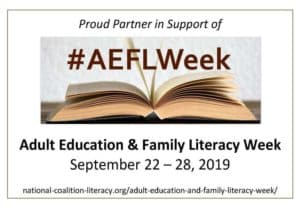The Census Online
September 27th, 2019 | Blogs
The results of the Census 2020 will have a deep impact on the lives of everyone living in the United States, yet the “count” will happen differently next year than it has in the past. The odds are good that you won’t receive a census survey in your mailbox. Instead, most people will receive a postcard with a unique Census ID and instructions to go online and complete the census survey.
This ‘internet first’ strategy is meant to modernize the decennial survey of American households, but there are signs that it will further jeopardize already vulnerable communities.
Data from the census determines two key things that impact your community: allocation of federal resources and Congressional representation. By some estimates, $900 billion a year are allocated by the data collected via the census and political districts for the U.S. House of Representatives, and many state Houses, are determined by the results.
The census aims to count every resident, citizen or noncitizen in the United States or serving overseas on April 1, 2020, as mandated by the U.S. Constitution. The Census 2020 is undoubtedly the most politically charged census in American history. Repeated attempts by the current Administration to include a citizenship question have all failed, but the chilling effect of the politicalized rhetoric used to advance that agenda has already put response rates at risk.
And while using the internet to do the counting seems sensible, we can look to New Zealand’s recent census and see our future. In March 2018, New Zealand conducted an internet-based survey with fewer resources and fewer on the ground staff than in years past – the same as the US is planning to do – and it has led to an abysmal result. Nationally, there were 10% fewer responses, but with certain populations, like the indigenous Maori population, responses were down more than 20% from the 2013 survey. And this isn’t just about comfort with technology: the response rate for New Zealanders aged 15-29, a demographic group known for engagement with digital technologies, was down 13%. A government commission will try to retrofit the survey data to fill out the complete picture of their country, but already some people are calling for the next survey to be postponed until 2023 to allow more time to create a viable process. This means New Zealand won’t have a true picture of the size and demographics of their communities for years to come.
Closer to home, in a recent interview, Joshua Edmonds, Detroit’s Director of Digital Inclusion, sounded the alarm for his city:
What’s looming over all of this is the fact that the census next year is going online. And when I have residents, namely my older residents who were like, “No, I don’t feel like doing this,” or “I don’t feel comfortable doing this,” what are the implications around the census and us being counted? There is a cash value that every single resident has. I might get the figure wrong, but I believe every resident is worth $1,800 a year to the census. If you’re not counted, imagine the implications around that.
The U.S. internet first strategy is a given and the Census Bureau is under-resourced and facing what the Government Accountability Office calls a “high risk” census. However, the U.S. Census has never produced a perfect picture of America, with historic undercounts of young children, populations who experience lower incomes or housing instability, or members of certain age or racial and ethnic groups. National efforts by the Congressional Black Caucus, Census Counts, and the American Library Association, National Coalition for Literacy, and World Education– among others – aim to motivate communities to stand up and be counted.
Adult educators have a critical role to play in motivating and supporting adults to respond to the census. As trusted allies, adult educators can build a network of census advocates and join local Complete Count committees, helping their communities get the resources and representation that is their due. Educators can work now on the digital literacy skills people will need to complete a short series of questions on the census, and they can make plans with their communities to open computer labs to the public on April 1 Census Day and beyond.
The National Coalition for Literacy (NCL) is supporting educators in understanding their role and responsibility in the census. NCL has resources available and will be holding national webinars over the next several months. The work kicked off with a webinar on Preparing Adult Education Programs for the 2020 Census.
World Education, an NCL member, is an active partner in the Census 2020 effort through its New England Literacy Resource Center (NELRC). The NELRC’s Stand Up and Be Counted initiative will develop classroom and program activities that help adult learners understand why the census matters, how to participate safely, and how to avoid scams. They will be available online and through The Change Agent magazine for adult education.

World Education fosters enduring partnerships across regions and sectors to advance education outcomes for all. We offer education systems strengthening, program design and implementation, applied research and evaluation, capacity development, and policy development services.